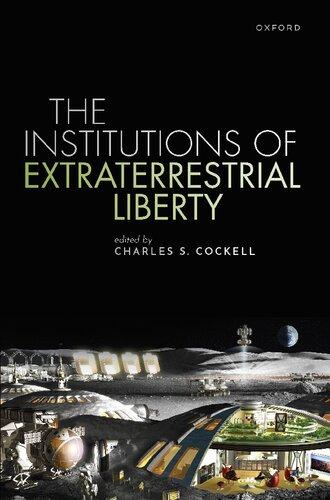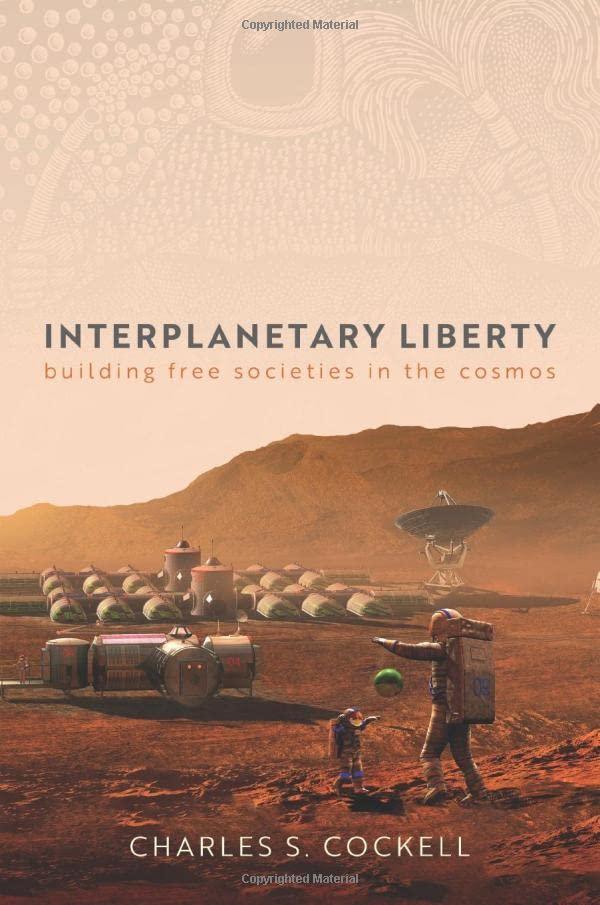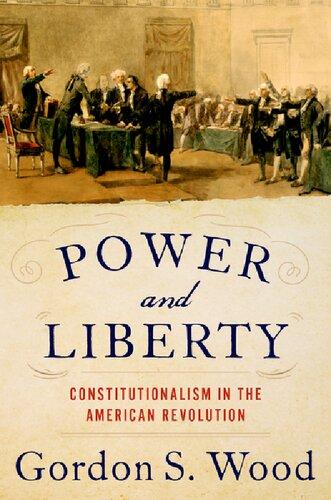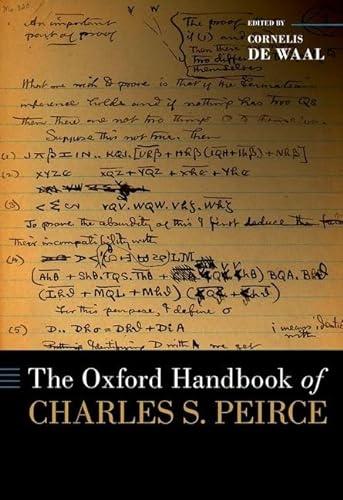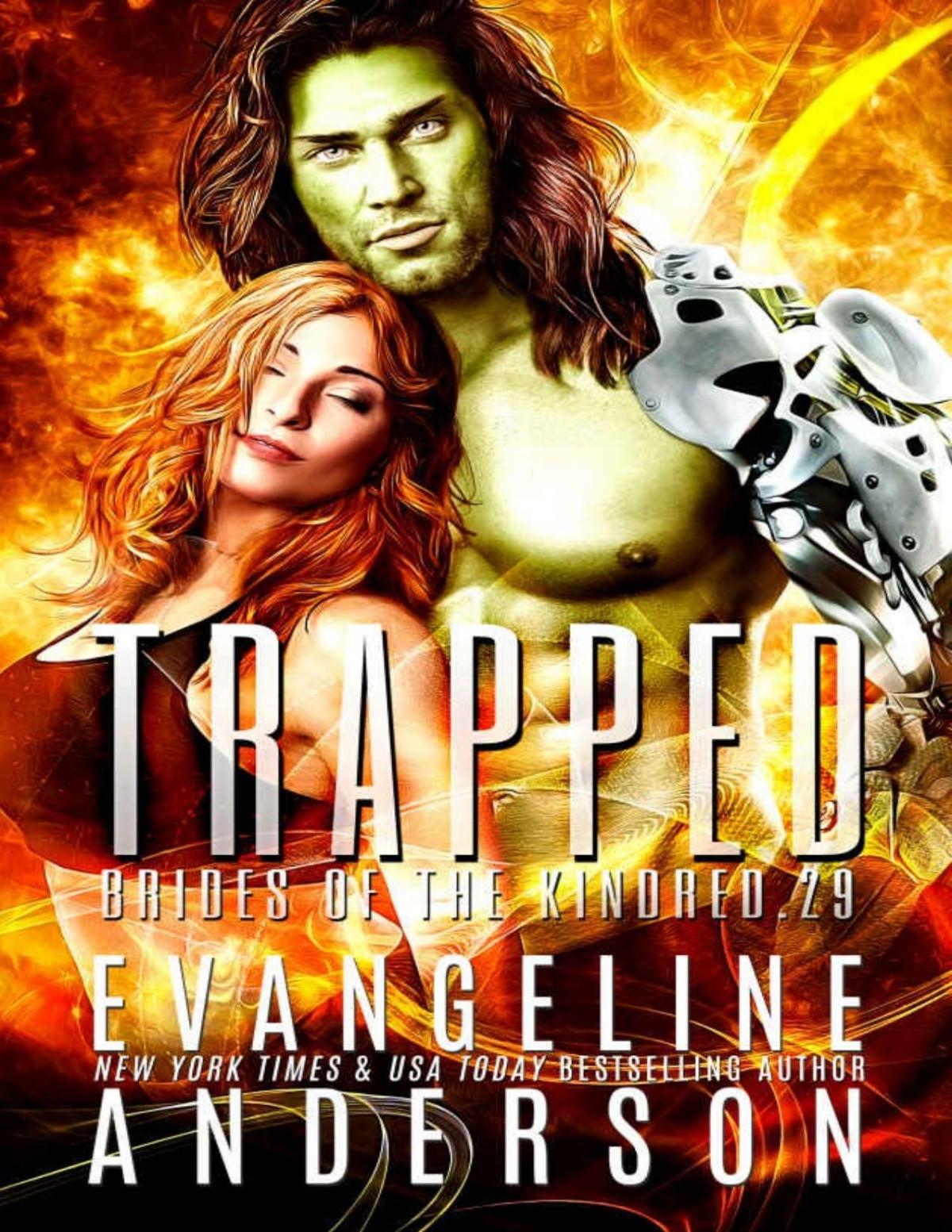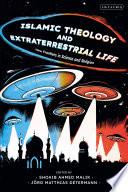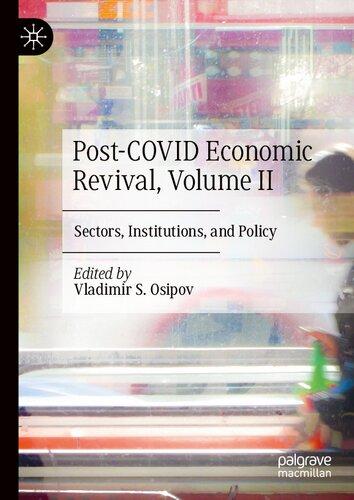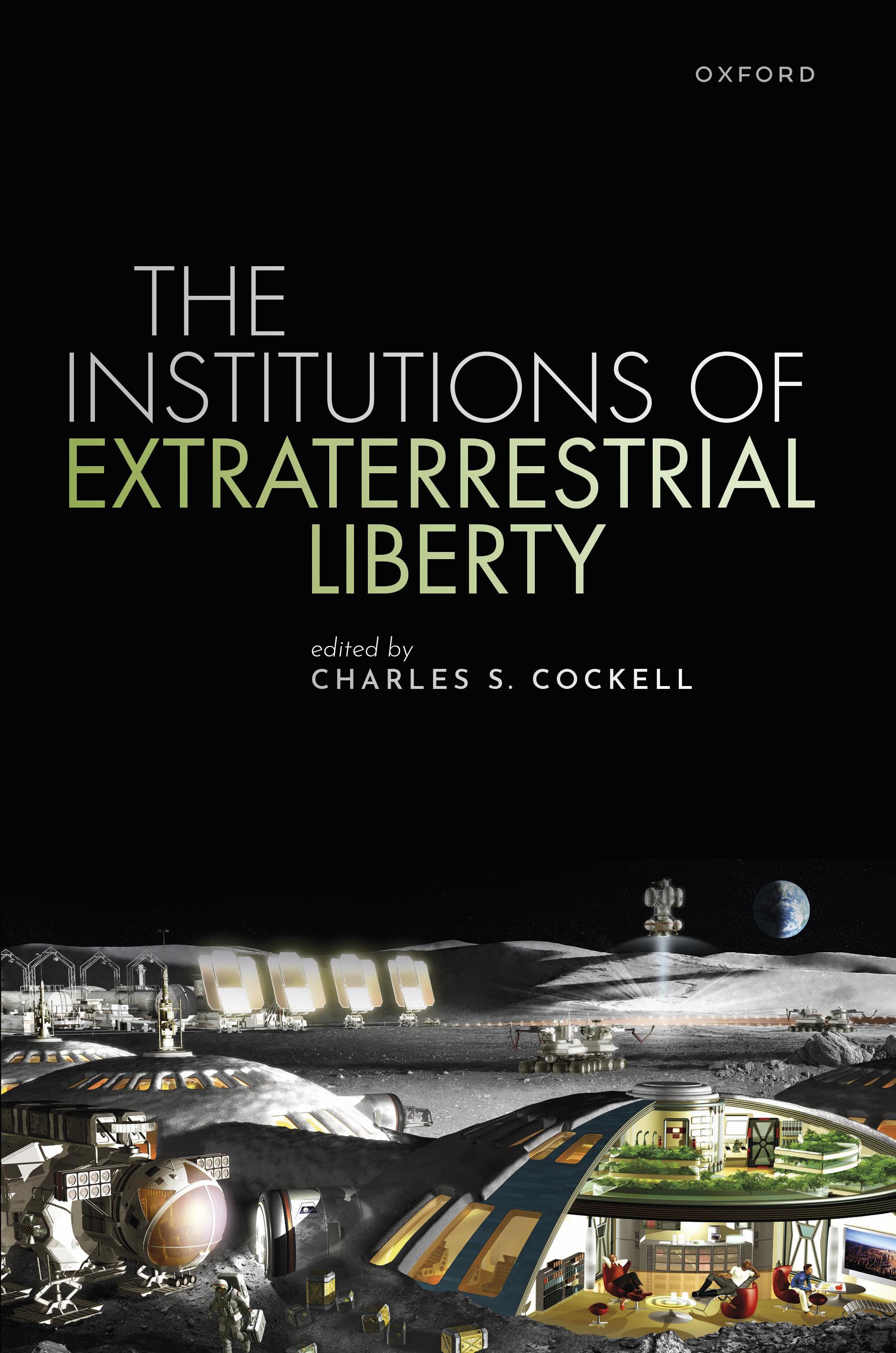The Institutions of Extraterrestrial Liberty Charles S. Cockell (Editor) Visit to download the full and correct content document: https://ebookmass.com/product/the-institutions-of-extraterrestrial-liberty-charles-s-coc kell-editor/
More products digital (pdf, epub, mobi) instant download maybe you interests ...
Interplanetary Liberty: Building Free Societies in the Cosmos Charles S. Cockell
https://ebookmass.com/product/interplanetary-liberty-buildingfree-societies-in-the-cosmos-charles-s-cockell/
Power and Liberty: Constitutionalism in the American Revolution Gordon S. Wood
https://ebookmass.com/product/power-and-libertyconstitutionalism-in-the-american-revolution-gordon-s-wood/
Revisiting Traditional Institutions in the KhasiJaintia Hills Charles Reuben Lyngdoh (Editor)
https://ebookmass.com/product/revisiting-traditionalinstitutions-in-the-khasi-jaintia-hills-charles-reuben-lyngdoheditor/
The Oxford Handbook of Charles S. Peirce (Oxford Handbooks) Cornelis De Waal
https://ebookmass.com/product/the-oxford-handbook-of-charles-speirce-oxford-handbooks-cornelis-de-waal/
Covid-19: Biomedical Perspectives Charles S. Pavia
https://ebookmass.com/product/covid-19-biomedical-perspectivescharles-s-pavia/
Liberty Hill (The Liberty Hill Series, #1) Sonja Heisinger
https://ebookmass.com/product/liberty-hill-the-liberty-hillseries-1-sonja-heisinger/
Trapped: Brides of the Kindred Book 29 Faith Anderson
https://ebookmass.com/product/trapped-brides-of-the-kindredbook-29-faith-anderson/
Islamic Theology and Extraterrestrial Life Jörg Matthias Determann
https://ebookmass.com/product/islamic-theology-andextraterrestrial-life-jorg-matthias-determann/
Post-COVID Economic Revival, Volume II: Sectors, Institutions, and Policy Vladimir S. Osipov
https://ebookmass.com/product/post-covid-economic-revival-volumeii-sectors-institutions-and-policy-vladimir-s-osipov/
TheInstitutionsofExtraterrestrialLiberty TheInstitutionsof ExtraterrestrialLiberty Editedby CHARLESS.COCKELL
SchoolofPhysicsandAstronomy,UniversityofEdinburgh,UK
GreatClarendonStreet,Oxford,OX26DP, UnitedKingdom
OxfordUniversityPressisadepartmentoftheUniversityofOxford. ItfurtherstheUniversity’sobjectiveofexcellenceinresearch,scholarship, andeducationbypublishingworldwide.Oxfordisaregisteredtrademarkof OxfordUniversityPressintheUKandincertainothercountries
©CharlesS.Cockell2022
Themoralrightsoftheauthorhavebeenasserted
Impression:1
Allrightsreserved.Nopartofthispublicationmaybereproduced,storedin aretrievalsystem,ortransmitted,inanyformorbyanymeans,withoutthe priorpermissioninwritingofOxfordUniversityPress,orasexpresslypermitted bylaw,bylicenceorundertermsagreedwiththeappropriatereprographics rightsorganization.Enquiriesconcerningreproductionoutsidethescopeofthe aboveshouldbesenttotheRightsDepartment,OxfordUniversityPress,atthe addressabove
Youmustnotcirculatethisworkinanyotherform andyoumustimposethissameconditiononanyacquirer
PublishedintheUnitedStatesofAmericabyOxfordUniversityPress 198MadisonAvenue,NewYork,NY10016,UnitedStatesofAmerica
BritishLibraryCataloguinginPublicationData Dataavailable
LibraryofCongressControlNumber:2022945200
ISBN978–0–19–289798–5
DOI:10.1093/oso/9780192897985.001.0001
Printedandboundby CPIGroup(UK)Ltd,Croydon,CR04YY
LinkstothirdpartywebsitesareprovidedbyOxfordingoodfaithand forinformationonly.Oxforddisclaimsanyresponsibilityforthematerials containedinanythirdpartywebsitereferencedinthiswork.
7.EssayontheScottishIslands,theirlessonsforextraterrestrial governance,andasketchoftheapplicationsofthisknowledge tosettlementsbeyondEarth
2.FromMucktoMars:ASummaryofthePotentialofScottishIslands
3.LessonsontheEstablishmentofInitialSettlementsfrom ScottishIslands
3.1Ontheformsofcommunityandlibertyinsmallsettlements
3.2Ontheformsofgovernanceinmediumsettlements: Lairdshipversusdemocracy
3.4Conversation:Anunderappreciatedmechanismof communitycohesion
3.5Ontheneedforcommonpurposeandthecontroloffaction
3.6Ontheneedforasphereofself-governance
3.7Onthetensionbetweencapitalisticorsocialisteconomics
3.8Ontheroleofinformationindilutingtyranny
4.AGeneralSketchoftheTrajectoryofaNewExtraterrestrial SettlementConstructedfromtheExampleofScottishIslands
8.ThelawofMars’colonization
RaphaëlCosta
1.InternationalSpaceLawtoRegulateMars’Colonization
2.1ThelegalityofMartiancolonizing
2.1.1ThelegalityofthedefinitivehumanoccupationofMars
2.1.2ThelegalityofMars’mining
2.1.3ThelegalityofMars’militarycolonization
2.2ThelegalconditionsofMars’colonization:Respect ofinternationalspacelawprovisions
2.2.1Exclusivelyusepersonaljurisdiction
2.2.2Protectthesettlers
2.2.3Theenvironmentalobligations:Thehypothesisofterraforming
2.2.4Thecooperationobligations
3.TheLegalProblemsofaLong-durationMartianColony
3.1LegalissueswithintheMartianbaseitself
3.1.1Thelegalorganizationofthecolony
3.1.2Thelegalregimesofthehabitats
3.1.3ThelocaluseofMartianresources
3.1.4Theprogressivedevelopmentofinstitutionsandofa complexlegalsystem
3.1.5ThelegalrelationshipbetweenMartianforeigners
3.2.2Thehypothesisofacolony’sIndependenceDay
3.2.3Therelevanceofamaintainedunequallinkwiththecolony
3.2.4Theopportunitytocreateastatefreeofterritory
3.2.5Theendofactualspacelaw?
9.Brighteningtheskies:Institutionalsolutionstothesocietal andgeopoliticalrisksofspaceexpansionism
12.‘WehavecometoMarsforgood’:Sciencefiction,sovereignty, andthechallengesofliberty 173
SimonMalpas
1.Introduction:LivingonMars
2.‘ForGood’:PoliticsandColonizationinKim StanleyRobinson’sMarsTrilogy 174
3.A‘StateofException’:ThePsychologicalChallenges ofExtraterrestrialExistence 176
4.‘ACommonPowertoKeepThemAllinAwe’:Extraterrestrial Sovereignty
5.WritingLiberty:ScienceFiction’sExplorations ofExtraterrestrialSovereignty
13.Securingthelong-termpeacefuluseofspace
AllanMcKenna 1.Introduction
2.4Inadvertentescalation
3.CooperationorCompetition?
14.Indigenousinclusionwithinthedemocratizationofspace
TonyMilligan 1.DemocratizingSpace
15.Decouplingphysicalandspiritualascentnarrativesin
18.Makinghistorycosmic,makingcosmichistory:Waking uptotherichnessoflife’spotentialsbeyondEarth,or,how consequenceandcontingencybecameastronomicalinscope
2.TheExpandingHorizonofHistory
2.1Makinghistorycosmicenablesmakingcosmichistory
4.PenuriesofBeingPlanet-Locked,#1:ScarceHabitability
21.Sovereignstates,privateactors,and(national)spacelaws.A rapidlyevolvinglandscape
StefaniaPaladiniandIgnazioCastellucci
1.SpaceAge2.0.ABraveNewWorld
2.TheExistingLegalFramework
2.1The‘OuterSpaceTreaty’(OST)1967
2.2The‘RescueAgreement’(RA)1968
2.3The‘LiabilityConvention’(LC)1972
2.4The‘RegistrationConvention’(RC)1976
2.5The‘MoonAgreement’(Moon)1979
3.AnOutdatedFramework?
4.TheCaseofIridium33andCosmos2251Collision
5.SpaceLaw,Governance,andRegulation—BacktotheFuture?
5.1SpaceLawandGovernance:acomplexenvironment
5.2TheWestphalianparadigm
5.3Theneedforapost-Westphalianparadigm
5.4Thecaseforgloballegalpluralism
5.5Anewparadigmforspacelaw
5.6Nationalstatesandterritorialspacelaws
6.WhichNationalSpaceLaw?AComparativeApproach
6.1USA:U.S.CommercialSpaceLaunchCompetitiveness Act—Title51(PublicLaw114–90114thCongress,25 November2015)
6.2Luxemburg:‘Loidu20juillet2017surl’explorationet l’utilisationdesressourcesdel’espace’andfollowing regulations
6.3TheUK—SpaceIndustryAct2018
9.HowWeDealwithaDevelopingSpaceNormative Environment.ScenariosandOpportunities
BurkhardSchafer
1.CountdowntotheChapterin10,9,8…
2.WhenFriedeMeetsMaria
3.NoticeandTakedownRequestsfromGroundControlto MayorTom
23.Justiceinspace:Demandingpoliticalphilosophyfor demandingenvironments
JamesS.J.Schwartz
24.Extraterrestrialgovernance:Whytheconstitutionsofplanets shouldbegroundedintheconstitutionoftheirinhabitants
MichaelShermer
25.Globallegalpluralismandouterspacelaw:TheAssociation ofAutonomousAstronautsasasocio-legalcommunity
26.Onlibertariancommunitiesin/aroundouterspace:Is ecologyanantithesistoliberty?
27.LawandlibertyontheMoon
ListofContributors ZarinahAgnew,SocialScienceObservatory,CommunesResearchCommune,District Commons(withEldridgeCruse,KevinBruce,EngelbertWilfredPerlas,andJosephKrauter).
StephenBaxter,c/oChristopherSchelling,SelectricArtists,9UnionSquare#123,Southbury, CT06488,USA.
AnnaleaBeattie,AmityUniversity,Mumbai,RMITUniversity,Melbourne,MarsSociety Australia,NationalSpaceSocietyofAustralia.
MukeshBhatt,Birkbeck,BirkbeckCollege,UniversityofLondon,London,UK.
OctavioAlfonsoChonTorres,UniversidaddeLima,Lima,Perú.
ElenaCirkovic,EcosystemsandEnvironmentResearchProgramme,HelsinkiInstituteof SustainabilityScience(HELSUS),UniversityofHelsinki,Finland.
CharlesCockell,SchoolofPhysicsandAstronomy,TheUniversityofEdinburgh,Edinburgh, UK.
RaphaëlCosta,Paris–SaclayUniversity,Paris,France.
IanA.Crawford,DepartmentofEarthandPlanetarySciences,BirkbeckCollege,MaletStreet, London,UK.
JanetdeVigne,MorayHouseSchoolofEducationandSport,TheUniversityofEdinburgh, Edinburgh,UK.
MartinElvis,Harvard–SmithsonianCenterforAstrophysics,60GardenStreet,Cambridge MA,USA.
SimonMalpas,EnglishLiterature,TheUniversityofEdinburgh,Edinburgh,UK.
AllanMcKenna,SchoolofLaw,UniversityofGlasgow,Glasgow,UK.
TonyMilligan,CosmologicalVisionariesproject,King’sCollegeLondon,London,UK.
LucasMix,DurhamUniversity,Durham,UK.
EthanMorales,UniversityofCalifornia—Berkeley,Berkeley,CA,USA.
SimonMorden,13EgremontDrive,Gateshead,UK.
ThomasMoynihan,StBenet’sCollege,TheUniversityofOxford,Oxford,UK.
ChrisNewman,NorthumbriaLawSchool,NorthumbriaUniversity,Newcastle,UK(with WilliamRalston).
AnthonyPagden,UniversityofCalifornia,LosAngeles,CA,USA.
StefaniaPaladini,BirminghamCityUniversity,Birmingham,UK(withIgnazioCastellucci).
BurkhardSchafer,EdinburghLawSchool,TheUniversityofEdinburgh,Edinburgh,UK.
JimSchwartz,DepartmentofPhilosophy,WichitaStateUniversity,Kansas,USA.
MichaelShermer,TheSkepticsSociety,USA.
SaskiaVermeylen,LawSchool,UniversityofStrathclyde,LordHopeBuilding,141StJames Road,Glasgow,UK.
MatjazVidmar,TheUniversityofEdinburgh,Edinburgh,UK.
FransvonderDunk,UniversityofNebraska-Lincoln,Lincoln,NE,USA.
SheriWells-Jensen,BowlingGreenStateUniversity,BowlingGreen,OH,USA.
JoanneWheeler,AldenLegal,London,UK.
RobertZubrin,MarsSociety,11111W.8thAve.unitA,Lakewood,CO,USA.
Introduction CharlesS.Cockell
ThereisaviewthatwhenweestablishpermanentsettlementsbeyondtheEarthwe shouldstartagain,thatweshouldnottakewithusthemistakesandconflictsofour pastandrepeattheminspace,thatweshouldstrivefornewsocialarrangementsthat transcendthedisagreementsofthepast.Yethumanscannotescapethemselvesand therearecertainargumentsanddisagreementsthatwillcontinueinspacewhether wewishthemtoornot.Oneofthoseistheeternaldiscussiononlibertyandwhat libertiespeopleshouldorshouldnothave.AsThomasHobbesrecognizedoverthree centuriesago(Hobbes1651),thisisamatterthathasnoobviousresolution:
ForinawaybesetwiththosethatcontendononesidefortoogreatLiberty,andon theothersidefortoomuchAuthority,‘tishardtopassebetweenthepointsofboth unwounded.
Ifweweretoaskourselveswhenpeoplefirstbegantoconsiderthequestionof libertyintheextraterrestrialenvironment,wewouldrealizethatalthoughpeople maynothaveexplicitlyusedtheword‘liberty’inconnectionwithspaceexploration andsettlementuntilquiterecently,thematterisimplicitineverythingtodowith theseactivities.WhenKonstantinTsiolkovskymemorablywrote:‘Earthisthecradle ofhumanity,butonecannotremaininthecradleforever’,hewasmakingastatementaboutthechoicetoremainshackledtoEarthorseekthelibertytomoveout beyondit(Tsiolkovsky1911).Thiswasinessenceastatementabouthumanlibertyof asort.
Thefirsttentativestepstoformulateideasabout‘planetaryprotection’inthe1950s and1960s,regulationsthatgoverntheacceptablecontaminationofotherplanetary bodieswithbiotafromEarthandviceversa,werealwaysgoingtoimpingedirectlyon missioncosts,planning,andeventhelocationswherewecouldsendspacemissions. Planetaryprotectionisadiscussiononthetypesandexpressionsofscientificand technicallibertyinthespaceenvironment.Needlesstosay,alldiscussionsaboutthe weaponizationofspaceareovertdiscussionsaboutthelibertiesthatpeoplehavein spaceandthewayinwhichtheconductofpeopleinspacemightinfluenceothers.As onEarth,noactioninspace,ordecisionabouttheuseofspace,whetherscientific, technical,orlegal,isdevoidofconsequencesforthewayinwhichotherscanoperate. Therefore,argumentsaboutlibertyinspacehadbegunassoonashumansimagined movingintothatdomain.
Nowadays,peopleunsurprisinglytakemuchoftheirleadinthesediscussionsfrom existinginstrumentsofspacelawthattouchonmattersoffreedomtooperateinspace suchastheUnitedNationsOuterSpaceTreatyorMoonTreaty.Inthisvolume,these CharlesS.Cockell, Introduction.In: TheInstitutionsofExtraterrestrialLiberty EditedbyCharlesS.Cockell,OxfordUniversityPress.©CharlesS.Cockell(2022). DOI:10.1093/oso/9780192897985.003.0001
legalinstruments,andothers,arecitedoften.Itisaltogethersensiblethatexisting legalframeworksaredeveloped,refined,andimprovedinanevolutionarywaysince agreatdealoftimehasalreadybeenspentondevelopinganddebatingthem.However,weshouldnotunderestimatetheextenttowhichspacemayofferenvironments, andgiverisetopopulations,thatcouldleadtocompletelynovelconstitutions,legal structures,andsocietiesthatwishtopartwithearlierEarth-boundlegalframeworks. Adegreeoftherevolutionaryispossible,particularlyiforganizations,mandates, agreements,accords,andotherlegalstructuresareperceivedtobecoerciveor countertothewishesofthoseinspace.Inthisvolume,weexploresomeofthese possibilities.
Weshouldnotbeunderanyillusionthatthematteroflibertyinspacewillever cometoanendorberesolved.Itmayseemparadoxicaltostatebutweshouldnot evenwishfordiscussiononextraterrestriallibertytobecomplete.Asocietyinwhich thereisnodisagreementaboutliberty,andinwhichallpeopleareincompleteunion onthematterofhowmuchfreedomandauthoritythereshouldbe,isasocietyin whichfreedomofthoughtisextinguished.Passionatedisagreementsonlibertyarethe symptomoflibertyitself.Hobbes’conundrumwillneverbesolvedandnorshouldit be.Itshouldfollowustothestars.
Nevertheless,itisalsotruetosaythatdisagreementsaboutthelevelofcontrol thatoneperson,orgroupofpeople,shouldbeabletoexertoverotherscanlead tobloodyconflict,anditdoesnotrequirealonglistheretoconvincethereaderof thistruth.Acursoryexaminationofthetwentiethcenturyaloneissufficient.Thus, althoughwedonotwishtostymiedebateonfreedom,itisalsothecasethatweshould encourageitspeacefulandcontinuousresolutiontopreventdiscordorwarinspace. Thatcharacteristicofdisuniononthematteroffreedomweshouldtrytoavoidatall costs.Howisthistobedone?Trivially,again,themosteffectivewaytoachievethe peacefulresolutionofdisputeistoencourageavibrantandvigorousdebateonthe formsoffreedomandtheirrealizationinspace.
TheInstitutionsofExtraterrestrialLiberty bringstogetheradiversityofthinkers withawidescopeofexpertiseinmattersofspacescience,ethics,law,philosophy, andotherfields.Ourinterestwasinconsideringtheinstitutionsthatwouldbelikely tosecurelibertyinspace.Howshouldearlygovernancestructuresbeassembled? Whataretheidealformsofinstitutions,fromscienceacademiestoschoolsandgovernments?Needlesstosay,althoughlibertyencompassesideas,andoftenideals,the wayinwhichweexperiencefreedomsisnecessarilyshapedbyhumaninstitutions andthewayinwhichtheseinstitutionsoperateandtreathumanbeingsinaneverydaysense.Inthisbook,authorsconsidermanydimensionsoffreedominspaceand whatourendsmightbeinsecuringdifferentformsofhumanliberty.Weespecially wantedtoinvestigatethepracticalimplicationsofthesegoalsforthewayinwhichwe goaboutbuildingorganizations,rules,andlawsonEarthandinspace.
Althoughlibertywithinfuturespacesettlementswasofspecialinterest,wealso wantedtoconsidermoreimmediatemattersthatareaconcerninthepresenttime— thelawsthatinfluencethefreedomthatorganizationshavetochoosesatelliteorbits andthechallengesofpreventingwarinspace,forinstance.Thus,thechaptersinthis volumeconsiderboththenear-termandlong-termprospectsfordifferenttypesof freedom.
Ourdiscussionsunderlinethefactthatspaceisnotahomogeneousenvironment. Thefreedomonehastouseaparticularsatelliteorbit,andtheargumentsthatmight existinwhocanclaimit,andhowanorbitistobeclaimed,isaquitedifferentmatter tohowcoerciveastationcommandershouldbeinencouragingagroupofspace settlerstoincreaseoxygensupplyonMars.Justastheformsoflibertyhavevaried acrossEarth,thespaceenvironmentwouldseemtoofferanalmostinfinitevarietyof permutationsofdifferentformsoflibertyindifferentlocations.
Thetypesoflibertythatcanexistinthespaceenvironmentwillchangenotjust overspatialdimensionsbutalsoovertime.Thelibertiesexperiencedbyasmallgroup ofsettlersontheMoonmaybedifferentfromthoseexperiencedbyalaterhypotheticalsettlementcontainingmanythousandsofpeople.AsonEarth,noagreementon theformoflibertywillbestaticandchangingcircumstances,technologies,andscales ofactivityarelikelytobringforthdifferentcombinationsandrequirementsforsocial control.Inmuchthesamewaythattheinfinitespatialscalesofspacemightseemto makepossibleavastmanifestationofsocialarrangements,sowemightalsospeculatethatthegreatexpansesoftimeoverwhichhumancivilizationmightexploreand settlethisfrontierwillallowforanever-endingdiscourseonthechangingconditions forlibertyandhowitistoberealized.Politicalphilosophershavetheirworkcutout forthem.
Despitethisvisionoftheinfinitepossibilitiesfornewdiscussionsonliberty,there maybe,runningthroughthem,universalformsoffreedomthatwehopetoencourage.Forexample,onEarth,freedomofconscience,thecapacitytowriteorspeak one’sopinionswithoutimprisonment,isregardedbymanypeopleasafreedomthat isindependentofgeography,history,orculture.Similarly,inspace,therearelikelyto besuchformsoffreedomthathavenorelevancetowhetheroneisontheMoon,Mars, inEarthorbits,orininterplanetaryspace.Wecanonlyfindoutwhatthesefreedoms arethroughenlighteneddiscussionabouttheformsoffreedombeyondEarth.
Thechapterswepresentherefollowafour-dayonlineconferencethatweheld8–11June2021,hostedbytheUKCentreforAstrobiology.Originallyplannedasan in-personmeetinginEdinburgh,ironicallyavirusconfinedustoourhomes,justas thelackofoxygenwillconfinefuturespacesettlerstotheirhabitatsandspacesuits formuchoftheirtime,influencingthelibertiestheyexperience.Thefourdaysof discussionwereopentothepublicandtheyprovidedameansfortheauthorsto refineandconsiderthechaptercontentscontainedherein.
Therewasthematterofhowtoorderthechapters.Ididconsiderarrangingthe chaptersinspatialorderfrommattersoflibertynearEarth(satelliteorbits)tothe furthestreachesofliberty(interstellarworldships),butthecontentsofmanychapters canbeappliedatmanyscales,makingthisafalseseparation.Theymightalsobe groupedaccordingtocontent(e.g.legal,scientific,philosophical).However,thistoo doesaninjusticetothemultidisciplinarynatureofmanyoftheproblemsweaddress. Intheend,Ioptedforarrangingthechaptersalphabeticallybyauthor.Thisistheleast invidiousandprovidesthereaderwiththeoptionofreadingchaptersinanorderthat mightreflectthereader’sowninterestsorpriorities.
Theworkpresentedhereshouldbynomeansbeconsideredexhaustiveandwe hopethatitis,albeitwrittenbyEarth-boundscholars,ausefulcontributiontoa discussiononthedepthandbreadthoflibertyinspace,adiscussionthatwillbeas
endlessinspaceasithasbeensincetheemergenceofhumansocietiesonEarth.We alsohopethatthisbookmaybeofvalueasasnapshotofideasin2021.Theexplorationandsettlementofspaceischangingataremarkablerateand,aswillbeclear inthesechapters,therearemanyunresolvedquestionsabouthowhumansshould operatethere.Futurescholarsmayfindthesechaptersusefultocomparetotheirown perspectivesasanhistoricalrecordofhowideasandthoughtshavechangedsincewe wrotethisbook.
References Hobbes,T.‘LettertoMr.FrancisGodolphin,fromParis’in Leviathan (firstpublished 1651,PenguinBooks,2017).
Tsiolkovsky,K.‘Aletter’(1911)<http://www.uranos.eu.org/biogr/ciolke.html>.
Arewereadyfornewliberties? Stewardingmutuallyassuredautonomythrough place-basedexperiments ZarinahKarimAgnew,EldridgeCruse,KevinBruce,EngelbertWilfred Perlas,andJosephKrauter
1. TowardsPosthumanism ‘Wemustactasifthefutureistoday.’ —HowardJ.Ehrlich
Theterm‘human’comesfromtheLatintermhumus,meaningsoil.Thesettlingand migrationawayfromplanetEarth,then,representslinguistically,symbolically,and materially(untilsoiliscreatedorfoundonotherplanets),steppingintoposthuman times.Inrelationtogeologictimerequiredtoproducesoil,ourcollectivehistoriesas aspecieshavebeenbothrelativelybriefandextremelydynamic.Humansocietyhas grownandshrunk,evolvedandflourished,manytimesover.Presently,wehavean internationalworldforgedonandnowdominatedbycolonialandterritorialframeworksandWestphalianstatesovereignty.Yetformanythesettlingofspaceisthe ‘utopianimpulse’(Jameson2005),thatis,botharesponsetoandcritiqueofexisting socialconditions,alongsideavisionthatgoesbeyondthese,anattempttotranscend ortransformthoseconditionstoachieveanewsociety.Aswebearwitnesstocorporateinterestsandultra-elitetourismforgingtheirwaytotheforefrontofexploration (ShammasandHolen2019),wemustcastacriticaleyeoverwhetherourtechnologicalachievementsaresufficienttopromisespacefuturesthatareanydifferentatall toourearthlypasts.Itseemsoursocialtechnologiesarewoefullylackingbehindour technicalachievements.InMurrayBookchin’s1978speech(Bookchin1978),heclarifiesthedistinctionbetweenfuturismandutopianism(orwhatBookchinreferstoas ‘ecology’);‘Futurismisthepresentasitexiststoday,projected,onehundredyears fromnow’.Whatweneed,hesays,isutopianism.Heassertsthatweneedtochange thepresentinordertoenableafuturethatdiffersfromwhatwehavetodayinorder thatthefuturecanrevealitselftobedifferentfromthepresent.Muchhasbeenwrittenabouthowourcollectiveimaginationshaveinsomewaysstuntedthefuturesthat areavailabletous.Todayoursocietiesareorganizedaroundcapitalism,andthesystemisentrenchedtothepointthat,asFredericJamesonfamouslynoted,itiseasier toenvisiontheendoftheworldthantheendofcapitalism(Fisher2009).Prominent inthisfieldofinquiryisMarkFisher’swritingoncapitalistrealism(Fisher2009)in
ZarinahKarimAgnewetal., Arewereadyfornewliberties?.In: TheInstitutionsofExtraterrestrialLiberty EditedbyCharlesS.Cockell,OxfordUniversityPress.©ZarinahKarimAgnewetal.(2022). DOI:10.1093/oso/9780192897985.003.0002
which,itisargued,ourcollectiveinabilitytoimaginealternativefuturesrendersthe futurecancelled.
Whatistobedoneinthismomentwheretheexpansivefuturesweseekareoutof reach?Notbecauseofourtechnicalinabilitybutperhapsbecauseweareblindedbya naïveoptimismthatnewtechnologiesforgedinpresentdaysocioeconomicsaresufficienttocreatenewfutures;atechnooptimismthatneglectstorecognizethatweare adeeplyandfundamentalsocialspecies,withsubjectivitiesforgedinsocietalpressuresthatinmanywayskeepusanchoredinthepast,stuntingourabilitytoenvision wideenoughhorizonsforhumanity.Understandingthatthepossibilityofpresentdaychangeisperhapsa(necessarybutnotsufficient)prerequisitetorealizingfuture extra-terrestrialliberties,itisnecessarytodefinethewho:thatis,whowemustbe andwhowemustbecomeinordertobeagentscapableoftransformingoursocial structuresinordertorealizeourdesiredfutures.Theterm‘NewSpace’denotesthe arrivalofcapitalisminspace,andasShammasandHolendescribe,onlybenefitsa selectportionofEarth-basedsociety(ShammasandHolen2019).Yetifallhumans aretoparticipateandbeagentsinextra-terrestrialliberties,thenallhumansshould atleastbeabletoexperienceandaccesslibertiesnow/inthepresent/inthehere andnow.OnEarth,wearefarfromthisreality.Definingwhatconstitutesthecategoryofhuman,andwhoqualifiesfortheprotectionsthatthiscategoryconfers,has historicallybeenatopicofdebateandpronetodireerrors.Defining,reflectingon, andexpandingwhatandwhoconstitutesthecategoryofhumanisvitalifweareto avoidrepeatingthemistakesofhistoryaswesendourfirstcommunitiesintoextraterrestrialdomiciles.Intheirworkonposthumanism,Braidottiwrites:‘Notallofus cansay,withanydegreeofcertainty,thatwehavealwaysbeenhuman,orthatweare onlythat.Someofusarenotevenconsideredfullyhumannow,letaloneatprevious momentsofWesternsocial,political,andscientifichistory’(Braidotti2017).Inasimilarvein,Bratton’spieceonterraformingremindsusthatwhilstterraformingusually referstothetransformationoflandmassesofotherplanetstorenderthemacceptable tolife,weurgentlyneedtodothesamehereonEarthforthisplanettoremainviable tolifeaswecurrentlyknowit(Bratton2019).
Theselinesofthinkingbegthequestionsofwhoarethepeoplesofthefutureand howdowegetfromheretothere?Herewepositthatquestionsofextra-terrestrial governancewillneverbesufficienttoachieveutopiansocietieswithoutalsoaddressinghowtopreparehumansraisedincurrentsocialmodesforlivesoflibertythat arenotcentredaroundthelibertarianindividualismsbutinsteadfocusoncollectiveandmutuallyassuredautonomies.Inaddressingthetypesofinstitutionsthat mightbecreatedinspacetomaximizeliberty,weaskrelatedquestions:Areweas actorsreadyforsovereignty?Dowehavetheskills,relationships,knowledge,and experiencetoforgenewliberties,and,ifnot,howdoweprepareforthekindsofliberties,andchallengestoliberty,thatspacemigrationwillaffordus?Wearguethatour worktopreparetobethespeciesthatweneedtobe—theactors,co-operators,and participants—mustbeginhereandnow.Insodoing,weaimtoadoptanapproach outlinedbyFerrando(Ferrando2016)inwhichtheyadoptanonto-epistemological inwhich‘spacewillbethusaccessedas“awayofrevealing”,allowingforanoriginal understandingofthenotionofspace’.
Asacasestudyforthistypeofexperimentation,wedescribetwoprototypespaces, alongsidetheirlessons,theory,andpraxis,thathaveexploredthecollectivefreedoms forperhapssomeofthemostlibertyrestrictedanddisenfranchised:theformerly incarcerated(henceforth‘returningcitizens’).Inthesespaces,halfoftheresidents haveallservedindefinitelifesentences,andhavecollectivelyservedmanycenturies incarcerated,andhavenotonlybeenraisedintheabsenceofaccesstoeffective governmentinstitutionsbuthavealsoarguablyinternalizedtheirconstraints.
Smallcommunitydomicilesareanidealformatforlearningaboutanditeratingon howtoobtainfreedomandbefree,toexplorenewlibertiesandkinship.Thosewho comprisethefirstcommunitiesof‘spacemigration’(Ferrando2016)(atermused todenotemovingawayfromcolonialistlanguage)willalsobesmallgroups,sharing space,community,andvitallifelines;thesewillbesmallgroupsforwhomtheability tocooperate,becohesive,andstewardeachother’slibertywillbeapersonalmatterof lifeanddeathandalsoacollectivematterofexistenceandpersistence.Thesesmall, stablecommunities,insomewaysthen,parallelthedynamicsofwhatarelikelytobe early‘spacemigrations’.Moreover,weargue,thesociallogics,norms,andprinciples thatseedtheseearlyextra-terrestrialcommunitieswillbeformativeintheevolution andsocialreproductionofculturalnormsasnewgenerationsjointheminspace. Thus,learninghowtobuildnewliberties,mutuallyassuredfreedoms,andkinshipin smalldomesticgroupsisanessentialpartofthesocialpreparationthatthefutureof humanityinspace,andonEarth,deserves.
2. MutuallyAssuredStewardedAutonomy Iammostgladtohavemypersonalliberty,butIonlyhaveittotheextentthatthere isasphereoffreedominwhichIcanoperate.Thatsphereiscoproducedbypeople wholivetogetherorwhohaveagreedtoliveinaworldinwhichtherelationsbetween themmakepossibletheirindividualsenseofbeingfree.
Soperhapswemightregardpersonallibertyasacipherofsocialfreedom.Andsocial freedomcannotbeunderstoodapartfromwhatarisesbetweenpeople,whathappenswhentheymakesomethingincommonorwhen,infact,theyseektomakeor remaketheworldincommon.Theworldisgiventomebecauseyouarealsothere asonetowhomitisgiven.Theworldisnevergiventomealonebutalwaysinyour company.Withoutyou,theworlddoesnotgiveitself.Weareworldlesswithoutone another.
ButlerandBerbec2017
Hannah Arendt(2018) wrotethatfreedom‘doesnotcomefrommeorfromyou;it cananddoeshappenasarelationbetweenus,or,indeed,amongus’.Buildingon theseideasinaninterview,Butlerspeakstotheideaofpersonallibertyasa‘cipher ofsocialfreedom’(ButlerandBerbec2017),andindoingso,speaksdirectlytothe issuewefocusonhere.Liberty,bothonplanetEarthandelsewhere,isasociallyheld, mutuallyassuredphenomenon.Assuch,thetypesoflibertyandfreedomthatwecan
hopeforwillbedeterminedbyoursociality.Oursociallogicsaffectourdevelopment asindividuals,thedevelopmentofourrelationshipswitheachother,thekindsof kinshipandcommunitiesthatweforge,allthewaytotheinstitutionsthatshapeus andthegovernancethatempowersus.
Wearguethatlibertyrequiresindividualdevelopmentandcollectivenurturingif wearetoencounternewformsofitinextra-terrestrialsocieties.Asindividualsand asgroups(collectives,teams,kin,corporations),weneedtocultivatetheabilityto knowwhatonewantsandneeds(autonomy)aswellascollectivelyensurethateach individualhasthematerialresourcesneededtoenactthoseneeds(agency).Mutually assuredautonomydictatesanunderstandingofandrelationshipwiththeautonomy ofothers,anembodiedsensethatweare,asButlerputsit,makingasphereoffreedomincommon.Likeallcommons,mutuallyassuredautonomyneedstendingtoif itisnottobedegraded.Freedomisacommons,acommonwealthwhereby‘Collectivefreedomandcollectivehappinesscanexistonlyasthesumofthefreedomand thehappinessoftheindividuals’(Bakunin).Andthuswhenanindividualfreedom isdegraded,takenfromorusedtobenefitanother(extracted),collectivefreedomis weakened.Wepositthataformof‘antiindividualisticindividuality’(Gee2003)is requiredtocreatetheconditionsforflourishing.Bythatwemeanamovefromindividualismtomutuallyassuredautonomy.Asagentsofthefuture,itisessentialthatwe collectivelydevelopandcultivatetheskillsforautonomy(moral,political,andpersonal)aswellasagencyandself-determinationwithoutleaningintoindividualism orcollectivismintheextreme.
3. Place-basedExperimentalSpacesinFuture CraftingandSocialInnovation Thesharedimpulseofallversionsandunderstandingsofsocialinnovationisthe efforttodesigninitiativesinaparticularpartofsociety—anorganisation,apractice oranareaofactivity—thatsignalapromisingpathofwidersocialchangeevenas theymeetapressingneed.Theinnovationsthatthemovementseekstoadvance convertexperimentsdesignedtosolvesocialproblemsintotransformativeambition: theefforttochangesomepartoftheestablishedarrangementsandassumptionsof society.Thefocusofthemovementfallsonproblemsthathavenotbeensolvedby eitherthestateorthemarket.
Unger,2015
Domiciles,residentiallivingenvironmentsand home arecrucialsitesoflastingand stableexperimentation.Assuch,thesearevitaltestbedsforsocialtechnologiesof thefuturethatwesuggesthavemuchtoofferinpreparingcommunitiesofpractice forextra-terrestrialliberties.Wehavewitnessedasurgeintestbedsandlivinglabsfor theexplorationofsociotechnicalavenues.Engels,Wentland,andPfotenhauer(2019) arguethatsuch insitu sitesofexperimentationconstituteamarkedapproachto advancesociotechnicalinnovationacrossgeographyandtechnicaldisciplines.These approachesservetomovebeyond,orhaveariseninreactionto,theincreasinglyclear
observationthatpolicyshiftsto‘grandsocietalchallenges’arelacking.‘Testbedsand livinglabsrepresentanexperimental,co-creativeapproachtoinnovationpolicythat aimstotest,demonstrate,andadvancenewsociotechnicalarrangementsandassociatedmodesofgovernanceinamodelenvironmentunderreal-worldconditions’ (Engels,Wentland,andPfotenhauer2019).
Physicalspacesareonelocusforprototypingalteredsociallogics.Theyarebyno meanstheonlysiteofcollectivetransformationbutthesesitesofdomesticityare long-lasting,sharedsocialenclosuresthatallowthedevelopmentandexploration ofdecision-making,governance,conflictresolution,andresourceallocationanddistribution.Manyofthesecollectivebehaviours,bydefinition,requirecollectivityto experimentwith,andthereforeexperimentingwithhomeisapowerfulsiteforsocial innovation.Homeandtheeconomicsofhomearealsowidelyscalableasasetoflocal behavioursthathavehistoricallybeenadoptedinwidespreadways,aswehaveseen, forexample,withtheemergingdominanceofthenuclearfamily.
Thehome,asamajorsiteofhumansocialreproduction,isalsoapointofleverage forthealteringof‘biopoliticalproduction’,atermthatbuildsonFoucault’sconception ofbiopower.ForFoucault,theselfisproducedbyregulatorypowerstructuresthat surroundit,andthesubject,therefore,istherealizationofbothhistoryandpower. Biopowerreferstotheforcesthatadministerandregulatehumanlife,lives,andpopulations.Biopoliticalpowerthendescribestheimpactoftheseregulatorymechanisms asextendedto‘quantitativelytosocialreactionsandqualitativelytoconsciousness, intimacyetc’(RuivenkampandHilton2017).
Herewerefertocommons-basedplaces—thatis,physicalspacesthatconstitutea commons,wherecommoning isthemodeofbeingtogether.Inhisessay‘Commoning asaTransformativeSocialParadigm’,DavidBollierwrites:
Infacinguptothemanyprofoundcrisesofourtime,wefaceaconundrumthathas noeasyresolution:howarewetoimagineandbuildaradicallydifferentsystemwhile livingwithintheconstraintsofanincumbentsystemthataggressivelyresiststransformationalchange?Ourchallengeisnotjustarticulatingattractivealternatives,but identifyingcrediblestrategiesforactualizingthem.(Bollier2020)
Thisispreciselywhattheseexperimentalspacesattempttodo.
Wepresentthenotionthatplace-basedstewardedautotomybuildscollectivesocial logicfor‘beingotherwise’andsocialfuturecrafting(RattiandClaudel2016).Inhis essayonsocialinnovation, Unger(2015) writesthat‘socialinnovationsmustpoint beyondthemselves’andhewarnusthattheseeffortsarelikelytobemostimpactful inthearenasofsociallifethatarenotencompassedbyeitherthestateorthemarket, thatliebetweentheeconomicandpoliticalworlds.Thehomeispreciselysuchasocial sphere.Home,then,forthesecasestudiesaresitesofprefiguration(Boggs1977),asite toembodythemodesoforganizationandsocialrelationshipsthatstrivetoreflectthe futuresocietythatweseek.Prefigurativepoliticscombinesfiveprocesses:‘collective experimentation,theimagining,productionandcirculationofpoliticalmeanings, thecreationofnewandfuture-orientedsocialnormsor“conduct”,theirconsolidation inmovementinfrastructure,andthediffusionandcontaminationofideas,messages andgoalstowidernetworksandconstituencies’(Yates2015).
Youcannotadvanceliberationorsupportsocialtransformationifyouhavenot transformedyourownpracticesandthewaysyourorganizationdoesthings.Change beginswiththeorganization,andthepeoplewithinit,embodyingwhatchangelooks like.Thatisarequirementtobemeaningfulcontributorstothetypeofchangethat justicemovementsareenvisioningandbuildingeveryday.
—SolomeLemma(VanDeven2021)
Inthismodeofexploration,theinterventionofcreatingandprefiguringhomeeconomicsisitselfthethingthattransformseachoftheparticipants.Inasimilarvein, HowardEhrlichdescribesaconceptknownastransferculture(Ehrlich,1996),an attemptatfutureworldsrighthereinamongstthestatusquo,theoldworld,anexperimentinthefuture,manifestedinthepresent.Sitesoftransferculturesupportthe manifestationoftheideas,processes,behaviours,skills,andactivitiesthatareneeded tohelphumanstransitionfromthecurrentsocialformationtotheincomingone.We positherethathome,bothassitesofprefigurationandtransferculture,servesasa vitaltestbedforsocialtechnologiesofthefuture.
4. WisdomsoftheFormerlyIncarcerated Intheearly20thcenturyCaliforniaprisonsfollowedanormsystemcalledthe convictcode(‘don’tsnitch’andsomeotherthings).Bytheendofthecentury,selfgovernanceviathecodehadcollapsedandthesystemreorganizedaroundrace gangs.Someinstitutionaleconomistsapproachprisonsaslaboratoriesforemergent selfgovernance,becauseitisatoughenvironmentforstablegovernancetoemerge in,butitemergesanyway,andthat’simportant.
(Skarbek2014)
4.1 Socialorderemergesinalteredplaces Socialorderemergeswhereverandhoweverwearrangehumans,fromtheyoung humansdepictedinthereallife LordoftheFlies scenario(Bregman2021),toonline communities,ortotheemergenceofsignlanguageinNicaraguanschoolsfordeaf children(KeglandIwata1989).Thesameistrueofprisons.AsSkarbeknotes (Skarbek2014),gangsuseacommunityresponsibilitysystemwhereallmembersare responsiblefortheactionsofanymember.Thegroupsgovernpropertyrights,regulateinternalmarkets,andpromotecooperationwhenthestatefailstoorisunable tointerveneorgovern.Thesesocialrelationsofcontrolandregulationreachoutside prisonstotheoutsideworld.Crucially,theseare,accordingtoSkarbekandFreire, notbasedontrustandarefocusedonpeacekeepinginordertomaintainprofitabilityofafewindividuals.Howthen,onre-entrytocivilianlifedowetransformthese dynamicsintomutualcare,solidarity,andcollectivefreedoms?Durkheimtellsus thatsocialorderaroseoutofthesharedbeliefs,values,norms,andpracticesofagiven groupofpeople,andsoitisherethatthesespacesstarttheirwork.USincarceration ratesarehigherthananywhereelseintheworld.Oneinnineprisonersisservinga
lifesentence.Californiahasthehighestpercentageofprisonersservinglifesentences, around35,000.Thesehumansoftenenterthesystemaschildrenandfrequentlyserve inexcessof20years.Ontheirreturn,housing,home,andcommunity—fundamental partsofsurvival—arelacking.Thisrendersmuchoftheirexistencetobaresurvival. Undertheseconditions,theideaofbeingfreeisatreacherousone,andbegsthe question,towhataretheyreturning?
InanessayaboutsurvivingincarcerationStevenPowersreflects:
It’sfunnytoappreciateacityfromajailbus,becauseit’sthatverycitythat’ssendingyouaway.AndImeanallofitissendingyouaway—fromthedisciplinarians thatfancythemselveseducators,tothebullshitjobsthattreatyoulikeacrookfrom thefirstday,tothepolicewhomenaceyoueverywhereyougo.Thecitytaughtme thesurvivalmechanismsitwouldultimatelypunishmefor.There’snootherwayto understandit.(Powers2018)
Thispointsdirectlytotheissuethatthisgroupfaceonre-entrytocivilianlife, thatreturningtothesameconditionsthatledtoharmfulbehaviourislikelytolead tosimilarissues.Weaskinstead:whatifthisgroupreturnedtoadifferentsetof socialconditions?Cantheexperiencesandwisdomsofthisliberty-disenfranchised populationteachusaboutthefutureoflibertyandemancipation?
Cockell(2018) haspilotedaprogrammeinScottishprisonsthatallowsincarceratedindividualstodesignsettlementsonMarsaspartofamulti-weekeducational andfuture-orientedsocialreformprocess.Partoftheprogramme(‘LifeBeyond’) includesconsideringgovernance,socialarrangements,andcivicdutiesforthese environments—cruciallybringingtheirownexperienceofsociallogicsinprisonto theseissues.Cockell’spaperconcludesthat‘LifeBeyondhashelpedharnesstheoften latenttalentsofpeopleinprison,helpedgeneratepositivecontributionstosociety andstimulatedhopeforrehabilitationandfutureplansforlifebeyondprison’.
Inmanywalksofsocietythen,formerlyincarceratedindividualshavebeenshown tobeaguidingforcenotonlyinpersonaltransformationbutinsocietalchangealso. Carcerallyimpactedleadersplayakeyroleascatalystsinshiftingpublicnarratives empoweringcommunityleadership,influencingandcollaboratingatmultiplelevelsofcivicresponsibilityandgovernment(SturmandTae2017).Nowhereisthis moreevidentthaninthemovementtoreduceincarceration,tocultivaterestorativeandtransformativejusticeandtherevitalizationofcommunitiesthathavebeen affectedbymassincarceration.Thisisdowntohavingwhatisreferredtoas‘experientialcarceralknowledge’(Binnall2021).JamesBinnall,anassociateprofessorof law,criminology,andcriminaljustice,writes:
Intheend,experientialknowledgederivedfromacarceralexperiencehasvaluein allcontexts—thejuryincluded.Withoutit,effortstochangeourcarceraltrajectory areincomplete.Asoneofmystudentsisfondofsaying:‘Youscoopedusupand lockedusin.Nowlistentowhatwehavetosay—youmaylearnsomething.’
Wearguethatthiscommunitynotonlyhasmuchtoofferthefieldsofcriminaljusticereform,violenceprevention,carceralprocesses—whatmightbecalledthenature
ofbeingunfree—butalsothenatureofbeingandgettingfree,aswellasthefuture craftingofliberty.Theindividualscontributingtothischapterhaveservedindefinite sentences(‘lifesentences’),havebeendeeplyliberty-deprivedindividualswhoeach havedecadesofexperientialcarceralexperiencebutwhohavemanagedtotransform themselves,overcomethechronicnegationoftheirautonomy,toreturntosociety, freeindividuals.Assuch,theirjourney,collectiveexperience,andwisdomprovide auniqueandvaluablesetoflessonsaboutthefutureofnewliberties.Hereweconsidertheprocessoflearningtobesociallyfreeandliberatedafterthesocialdeathand chroniceliminationoflibertythatincarcerationimposes.
Thespacesthatwedescribeherewerebuiltwiththispreciseprobleminmind,and weaskwhetherwecanensurethatthosereturningtosocietyarenotreturningtothe samesocietalstructuresthatletthemdowninthefirstplace,butareleapfrogginginto theautonomousparticipatorycommons.Canenteringintothesenew(orperhaps old)sociallogicsnotonlyhelppeoplerecoverfromachronicabsenceoffreedom andbypassoldmodesbutactuallydevelopandprototypenewformsofcollective autonomyandsovereigntythroughhome?Inbuildingadomesticcommonscentred aroundtheneedsandwisdomofthisgroup,thesespacesandcommunitiesforgedthe co-creationofliberatoryspacesthatprovidelessonsabouthowgroupscanachieve collectivefreedoms,andlearnmethodsofassuringourmutualautonomy.These lessonsarecrucial,notjustforreturningcitizensemergingfromthesocialorderof prisonsbutalsoforthegeneralpopulationwhomustemergefromanincreasingly individualized,zero-sumbasedsocietyiftheyaretobequalified,preparedagentsof newliberties,onthisplanetandothers.
5. PrinciplesofNewLiberties—LessonsfromPlace-based StewardedMutualAutotomy
‘Wehavetotalkaboutliberatingmindsaswellasliberatingsociety.’ —AngelaDavis
5.1 Whatcanbelearntforextra-terrestriallibertiesfromincarceration?
Bothprisonsandthesettlementofextra-terrestriallocicanbeseenasprojectsthat abandontheirnegativeexternalities.Prisonsarewhereweholdwhatweviewasour failedprojects,howeverwemightbewisertoobservethattheseindividualsarethose whomwehavefailed.
‘Prisonsdonotdisappearsocialproblems,theydisappearhumanbeings.Homelessness,unemployment,drugaddiction,mentalillness,andilliteracyareonlyafewof theproblemsthatdisappearfrompublicviewwhenthehumanbeingscontending withthemarerelegatedtocages.’
—AngelaDavis
Similarly,thesettlementofspaceisoftenmotivatedasaversionofAlbertHirschman’s formof‘exit’orescapefromthenegativeexternalitiesofthelifewehavemadefor
ourselvesonEarth;inhistreatiseonExitorVoice, Hirschman(1970) describesthe ultimatumthatconfrontshumansinthefaceofdeterioratingqualityofgoods;actors caneithercan exit bywithdrawingfromthesituation,orcanremainbutinstead deploy voice asatacticinpursuitofrepairandtransformationofthesituation(see Dowding2016).Howthentoensurethatspacemigrationdoesnotfallintoeither categoryofexitorvoicebutinsteadservesasaplatformofsomething,new,transformative,trulyexplorative,thatneitherrejectsourpastsnorpermitsthepastto obfuscatethefuture?
Lawsaresomethingputinplacetodealwithconflict,anduntilthereisconflict thereislittleneedforlawsorrules,northeenforcingofthem.Indeed,anarchydoes notmean‘nolaws’,itmeansnoneedforlaws(Gee2003).Andcertainlynotlawsmade bysome‘other’tobeenforcednon-consensuallyanduncritically.Andso,inthecommunitiesdescribedhere,thatarecentredaroundmutualemancipationandcollective autonomy—wherewerecognizethatuntilweareallfree,wearenoneofusfree— wediscussmodesofbeingtogether,inevolution,inconsensualconflict,inmutual freedomandsurvival.Insitesoftransferculturesuchasthese,self-governedcommunitiesareformulatingmodesofconflictresolutionthatbothhelphealfromthepast andprefiguresafuturesociallogictocome.Thissectionoutlinessomeprinciples thathaveguidedlearningandpraxisfromtheseprototypedspaces.
I’vebeenacagedanimalallmylife,youcan’tjustopenthedoorandletmewalkout intothejungle,Iwillbeeatenalive.
—BertPerlas,incarceratedfor22years
5.2.1 Socialfreedom Asearlierdescribed,anumberofauthorshavewrittenabouttheideaofpersonal libertyasacoverforsocialfreedom;thatliberty,autonomy,andfreedomarephenomenathataremeaninglesswithoutourmutualrespectandcollaboration.Inthese emancipatoryspacesandhomesbuiltbyformerlyincarceratedindividuals,thereis anunderstandingthattheautonomyofeachindividualisstewardedbytheothers. Thisincludesbeinggivenspacetomakemistakes,topushovertheedgeofwhat isacceptableinordertoknowthatedgebetterandnavigatewithmoredatainthe future.Thisispremisedonrecognizingthatgettingfreeisajourneythatweareall ontogether,anddifferentpeoplewhomoveatdifferentrateswillfinddifferentelementsdistinctlytroubling,butthatthegroupworksthroughthisprocesstogether.It istherecognitionthatgettingfreeisnotalinearprocessbutacomplexjourneyinvolvingdynamicinteractionswitheachother.Byung-ChulHan’sanalysisofmodernday freedom(orlackthereof)indicatesthatthereisnofreedomotherthanself-realization incollectiveformation:‘Freedomissynonymouswithaworkingcommunity(i.e.,a successfulone)’(Han2017).
5.2.2
Anti-individualisticindividualityandtransindividuation Thesovereignhumanknowsthatitisnotthewhole,butthatitlivesasapartofthe wholeandknowshowtorelatetoit.
